Media | Articles
Our Two Cents: Truths you learned with your car
In this episode of Our Two Cents, we asked the crew here at Hagerty Media about the one truth they learned while doing something with their car. It can be while working, driving, or maybe even daydreaming about their car.
To wit, I distinctly remember one time in high school with my algebra teacher caught me daydreaming about some sleek, fast, and stunning performance car . . . instead of actually doing my classwork. But quadratic equations haven’t done much for me since then, but my daydreams about cars led to a career here with you wonderful folks. But that’s a little off-topic, so let’s get back to the question:
What’s one truth you learned with your car?
Be patient
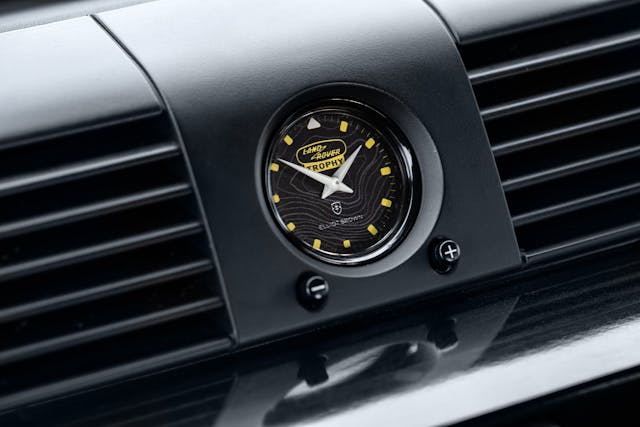
For starters, senior editor Eddy Eckart reminds us to not get too caught up in the work and to remember that good things come to those who wait: “Any decent-sized project will always take longer than you think. Patience really is a virtue. If you get stumped, solutions come to you by walking away for an hour/day/week.”
Bite off what you can chew

Smaller bites are usually much better for you. Hagerty Price Guide editor Greg Ingold gives a great follow-up to Eddy’s insight: “Big projects are best done in smaller, manageable bites. Take your time and set small, goals for yourself, which feels good when you hit them. The project will go smoother and be far more rewarding than just diving in without a plan and tiring yourself out physically and mentally. It’s kinda like what Eddy said.”
Marketplace
Buy and sell classics with confidence
Your happy place

Executive editor Eric Weiner reminds us all that self-care is a universal notion. No, you may not need a spa day; you may just need to clear your head with a long drive or quality time with like-minded friends: “First off, a day I drive my convertible is almost always better than a day I do not. Secondly, working on my own cars is a lot more enjoyable with the right space, knowledgeable friends to lend a hand, and the right tools. These are two of my happiest places.”
Potential energy has . . . potential?
Community coordinator Eugene Leeds is being a little coy about a suspension modification he once performed on a car, but we can read between the lines: “Springs are easy and safe to change out.”
Avoid compounding interests on a project
Yours truly is all about the compounding effect: If you are trying to multitask, and are unaware of your surroundings (heat exhaustion, for example), you will inevitably make a boneheaded move. This is relevant to driving, too, especially in wheel-to-wheel races.
I can’t tell you how many times I have bought parts from online vendors, psyched myself up for a big project, gotten sidetracked by life, become overheated in the Houston summer, and wound up in a fog that keeps me from my intended accomplishment.
It’s all in your head?
Editor-at-large Aaron Robinson is a master of minimalist wordsmithing: “If it’s hard, you’re probably doing it wrong.”
Time value of money
While “the time value of money” is normally associated with financial investing, editor Kyle Smith wants you to consider the concept when investing effort into your vehicle.
Saving money means spending something else—time or frustration, for example. It is possible to do projects and tasks on the cheap, but in order to save money we forfeit other things that are potentially more valuable. As difficult as it is to convince myself to pay someone to fix something, extra time with family or less stress in my life can be worth the cost. It’s all about perspective.”
I am sure we could come up with even more nuggets of wisdom, had I given the team a bit more time to consider their accomplishments and failures. But since we usually shoot from the hip at Our Two Cents, the only thing that remains is to ask you about the matter at hand. So go ahead and tell us: What’s one truth you learned with your car?
***
Check out the Hagerty Media homepage so you don’t miss a single story, or better yet, bookmark it. To get our best stories delivered right to your inbox, subscribe to our newsletters.
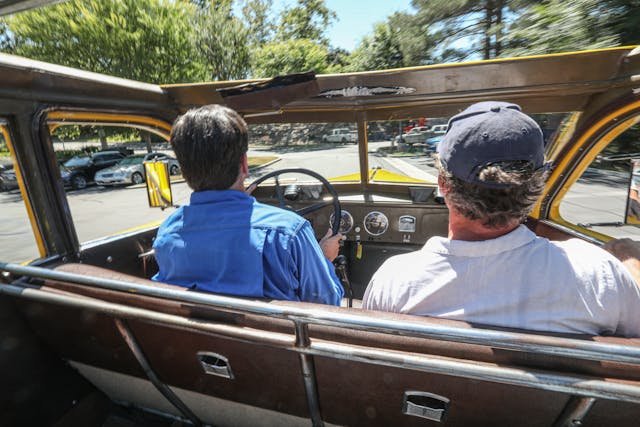
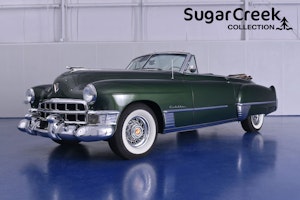
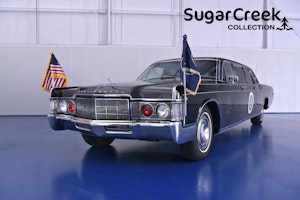
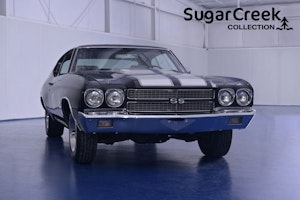
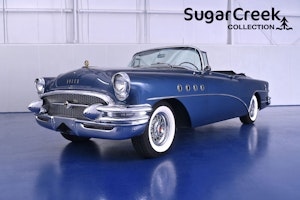
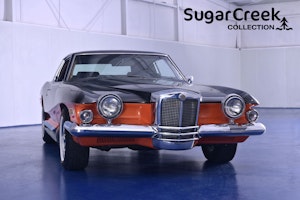
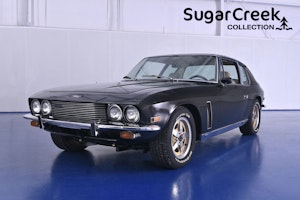


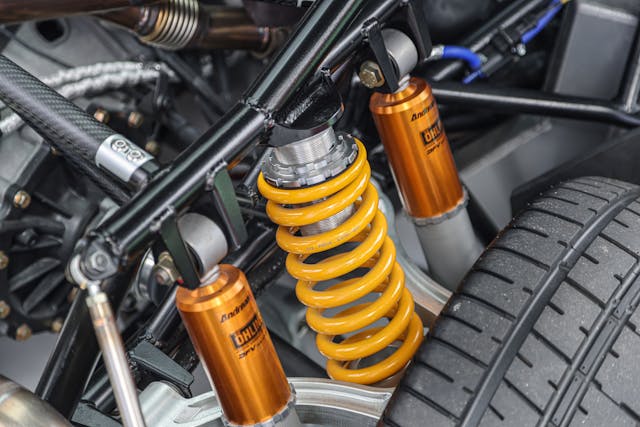
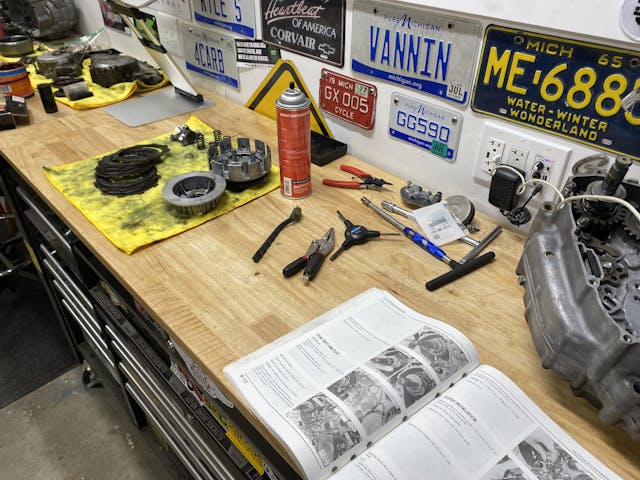
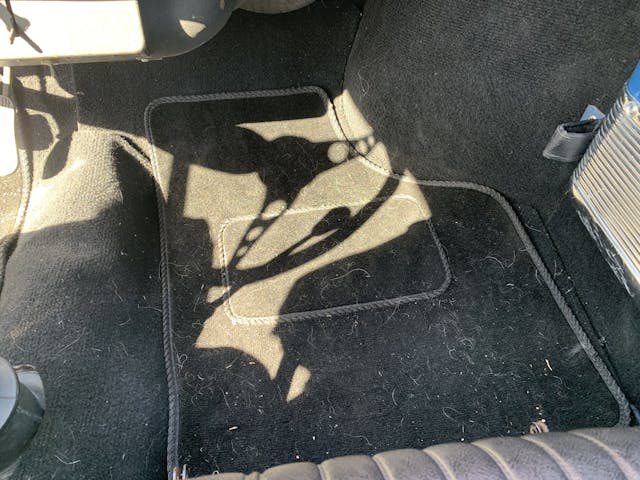








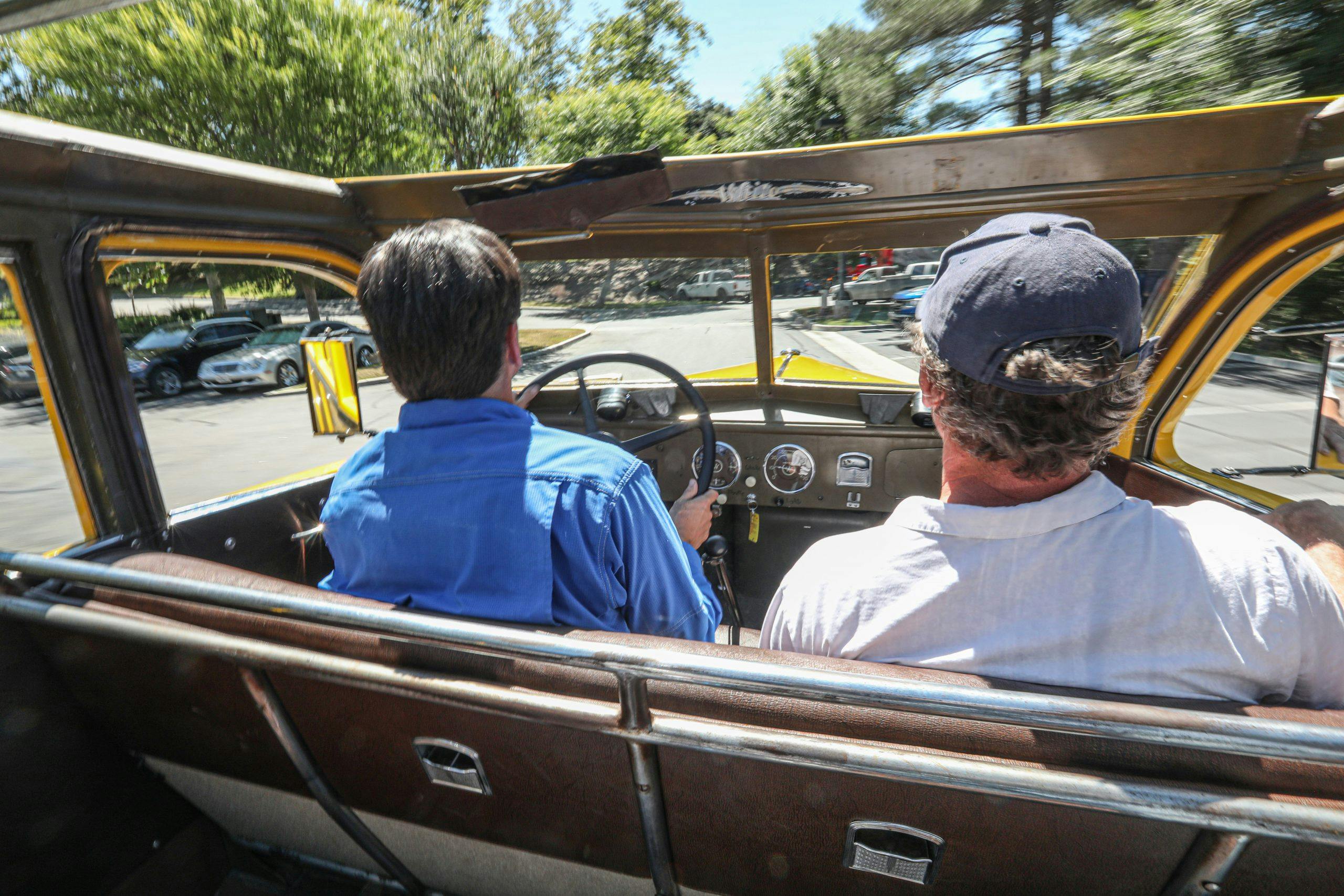
If you can’t afford the best example of a particular car, you really can’t afford one that isn’t the best. You may think of this as making payments over time, but those “payments” will greatly exceed the car’s value in the long run and make you resent your purchase.
Any restoration will cost at least three times as much as your highest estimate and take at least three times as long as projected. After the initial restoration, the car will still drive like garbage for the year-long sorting period, where even more things are fixed and parts you already replaced are replaced again.
Even if you’ve wanted to own a particular car for many decades, make sure it fits into your lifestyle. It’s not fun owning a car that you find you can rarely use because it’s not suited for local roads or climate, your family doesn’t want to ride in it, it doesn’t work for the types of drives you like to do, you have fear of expensive running costs, or it’s “too nice” or “too expensive” to drive like a real car.
I second this
I often tell people that cheap bargain is not always the best deal. I often suggest buy the lower mile and best condition car you can afford as it often turns out the be the better deal in the long run.
This is really true on cars that are difficult to find parts for and are not reproduced.
Very true, although ultra-low miles cars that are over 10 or 20 years old come with their own set of problems. Age, at least as much as use, can spell the end of rubber suspension bushings, along with engine/transmission gaskets and seals. Especially when those engine seals aren’t being kept supple with oil circulation.
The worst piston slap I ever encountered was on a VW Golf or similar that was 25 years old and had 30,000 miles on it. Or possibly vice versa. The owner, famous in the world of romance writing, had a commute that was 1.5 miles each way, and lives in Massachusetts. My cousin, who had played music every weekend with her husband, took me over to see the car while they were on vacation. Amazingly, some local car buff bought the car and resurrected it.
If you don’t want to work on a car, buy the best. but come on, bringing a car back is part of the challenge and the satisfaction of having actually performed the work. It’s like eating an elephant, one bite at a time.
True, and there isn’t enough information in that declaration to verify as it will vary greatly depending on the vehicle and the price range and what they need.
Oh, sir, you aren’t familiar with GM’s LS1 V8s, are you? My ’04 GTO, LS1, I’m the third owner, started audible piston slap at around 66,xxx miles. I drove the bejeesus out of it, because that’s what I bought it for; at 96,xxx miles, I missed a 1-2 shift at Brainerd International Raceway, and the valves were introduced to the pistons in the worst possible way. 2nd 5.7LS1, I’ve got 32,xxx miles additional on it, Brainerd, street racing, and I’m hearing that slap yet again. It’s ok, this time I have a 427/7L LS6 to replace it, and as long as I don’t lug the engine, slap is minimal. But I’ve never heard piston slap as harsh as the LS1 motors. Anyone?
I always go for the cheaper version with problems… but then again I’m an ex mechanic and for me the wrenching is a big part of the hobby. I however do agree with the general recommendation
Are you saying that less well off should’nt own a classic car?
The one real lesson I have learned from watching others and tried to apply to my life is to not get over emotional over a purchase of a car.
Buying a car for a car person is often a dream come true if you are buying the car you want and love.
Too often I see people blindly go into the purchase like a sudden marriage and often with he same results. The happily ever after just never arrives.
So by working on this and I still continue to work on this by learning emotional intelligence. This not only applies to the purchase but even working on a car you must think things out and be analytical more than emotional.
Even in racing you think things out and as you sort a car out you must look at things and think them out and not just take a guess,
Once you apply this to your car life you can easily apply it to all other parts of your life. This will pay big benefits as I have found at work and in business. Working smarter gives you a leg up on many people and often puts you into a better light.
This was my life lesson.. I also dreamed about cars in school and today the average C student is working for a large firm in the performance market and just loves what he does. Dreams are ok but make sure to keep working smart.
When it’s bought for love, with understanding, that’s the best. I’ve never been able to afford #1 or #2 cars. I buy what I love, because the working on them is what I do; no manufacturer has ever built what I want. I find leftovers, stalled projects, Dad died and never finished it, sat in a driveway for years, “needs a little work”. Sometimes, like my ’04 GTO, I can’t let go. Mostly I like to sell good running projects to kids/young people who will cherish them, and as I, spend money. But hyperV6, every car/bike/boat I buy is an emotional decision. I’m like Buddy Hackett in the original “Love Bug”, I can’t help but think that certain special machines might have some awareness. And I know that’s stupid, that machines are lifeless things… but when my hands are busy, and a rusty blown up piece of junk (never, to me) becomes what it was before- that’s when I’m most happy. That first turnover then fire! Something dead is again alive! That’s me. And yes, I’ve poured money down the drain and sold cars I had $10 grand in for $5k… but to someone like me, that cared. And I’ve likely fixed and sold 100+ cars in my 63 years; I miss them all, but they went to good homes. You’re looking at it as business, and your point is valid, if you aren’t soul sold to the lifestyle. But I’m single, get a VA disability check, have a really good career plus a side hustle. I won’t miss the money I spend on cars. I’d certainly miss the mental health and zen if I quit. Not all of us consider cars an expense. I can’t live without them.
That a BICYCLE is worth its weight in 24K fine gold.
The very first post I made to Hagerty Media is my answer (and of course, it was to the previous Community site and likely not available to read anymore). With no apologies to any shoe company, I titled it “Just Do It”, and it was simply the high points of the story of building a car to meet a dream of our youngest daughter. When I found that her favorite car was a bit out of my reach financially, I came up with a way to basically “create it” by cloning a similar model. She knew all along it wasn’t “real”, but she didn’t care., and we had a blast solving the issues of a build rather than just buying. We invested less than half what it might have cost and we were perfectly happy with the result. What I really learned – and tried to convey with the story – was that whatever obstacles might be in your way, you should look for ways to “just do it”. In my management career, I often preached a driving example to people: “There will always be someone or something in your way – instead of griping about it, spend your time figuring out how to put on your turn signal and go around whatever is holding you up. Yes, you have to proper precautions and look for traffic, but don’t expect the problem to just pull over and let you pass.”
The truth I learned with my car is that moping and complaining and wishing you had something better or waiting for it to be handed to you is wasted time – even if you have to lower your sights a bit, set a goal and Just Do It.
Something I learned very early, long before I learned to drive, was that we have a damn beautiful country, and that it’s an adventure to drive from one coast to another. My family of origin drove cross country when I was 4–and yes, I do remember that trip–again when I was 7, and then 8. My eyes were often glued to the window. Those trips gave me a great appreciation for American geography. When I was 10, I figured out that I could ride a bicycle across the country within a summer vacation. I did so after graduating from college.
Oh, sir, you aren’t familiar with GM’s LS1 V8s, are you? My ’04 GTO, LS1, I’m the third owner, started audible piston slap at around 66,xxx miles. I drove the bejeesus out of it, because that’s what I bought it for; at 96,xxx miles, I missed a 1-2 shift at Brainerd International Raceway, and the valves were introduced to the pistons in the worst possible way. 2nd 5.7LS1, I’ve got 32,xxx miles additional on it, Brainerd, street racing, and I’m hearing that slap yet again. It’s ok, this time I have a 427/7L LS6 to replace it, and as long as I don’t lug the engine, slap is minimal. But I’ve never heard piston slap as harsh as the LS1 motors. Anyone?
There is an easy way and a hard way to tackle every problem. I generally go straight for the hard way. The easy way generally involves corner-cutting steps where everything has to go just right, and you better not find some sort of unexpected problem along the way. I don’t know how many times I’ve seen folks waste three times the time on something because they absolutely refused to unbolt that doofidget that is in the way. Take it off, label, organize your hardware… and take pictures
While I have had my 68 Cougar since April 1968 I did buy four other vintage cars between 1985-2010 circa 1965-73. Didn’t look for the best as I kept my budget under $2000 so the Mustang and F100 were basket cases. The Park Lane and Polara not so much. Key is I can do all the work except upholstery and only the F100 required that. Each of those vehicles were restored by me for no more than $5000 but you must do everything including body work and paint. For me the enjoyment comes from working on the car and to my level of perfection. They are all great fun to drive. Problem is such vehicles are so hard to find today as a basket case today is more like a wreck and I am not in a mood for them as I look for #6. For me a trashed interior, which is expensive, is an absolute no go.
I have learned the hard way to not buy a car that my wife does not approve.
I saw an ad years ago that went something like “For sale. [some expensive motorcycle dirt cheap]. It turns out that ‘Do whatever you want’ doesn’t mean what I thought it meant.”
I bought a Ducati 900SS that way. I learned all sorts of things, including that it’s quite possible to put $5k into a motorcycle and still not be able to ride it. The desmodromic valve system is brilliant, until you have to use a poorly translated manual to set it up properly. We’re not gonna mention the engine cases that cost more than the bike was worth, cuz the original owner overshot redline and pretty much broke everything. Oh, but when it was done, and I got to stretch it out, every busted knuckle, misfit tool, and outrageous check was worth it. And I broke even on that one, after riding it like Rossi for two seasons. If you’ve never seen a Duck 900SS, and mine was Giallo Corsa (violent bright yellow), Google. Best looking cafe bike, EVER. And that 90° Vtwin makes revs instead of Harley fart noises. No valve springs. Amazing engineering. And eat ramen noodles expensive. No regrets. Wish I still had it.
So, so true. Unless you pay it forward and do something for her that offsets her disapproval (often harder to do than it sounds)
The thing my cars taught me: I can do more than I thought and I can’t do things I thought I could do by myself. Sometimes you need a helping hand and sometimes you need to be the helping hand.
At this point I have restored 10 cars/pickups and each time I have gotten better at both time management and my estimate of what I plan to spend on the restoration. Early on I had a couple of car restorations that did cost me double what I originally projected. It seemed like the snowball effect. Of course, I also thought I needed to get everything fixed right away. I agree with many of the comments that patience is a virtue. If you just get it running and driving you can start to enjoy the car. That in itself makes finishing the project go smoother.
Some years back we took some friends with us to a car show. The guy was kind of hung up on a T-Bird restoration, having stalled on a few issues. Afterward, he thanked me for showing him that cars didn’t have to be in perfect, finished condition to enjoy them. And what the heck – for most of us DIYrs, they’re NEVER finished or perfect, right? 😋
Preach, brother.
I just repaired my 03 M3, check engine light. So of course I plugged in the scanner and came up with P0010, cam intake sensor, possible Vanos failure, etc. The engine was running fine and even with the new light, continued to do so. So after researching possible causes, some very costly solutions I decided to closely examine all the connections. Maybe a connector problem or corrosion. What I found after some time was that I had a furry visitor chomp on the wires in a not to obvious location. Made the repair for almost nothing but some time and no more yellow light. So point here is Patience as was mentioned before. Ben Franklin said ” when in doubt continue to do so as there is good reason to” So many times a seemingly large problem turns out to be something minor. How many times have we heard of parts being replaced and not solving the issue. As far as buying car that needs nothing is not only expensive but totally boring if you are a mechanic or like to do your own repairs. I had a 2000 Corvette that needed nothing again boring. Now I have 2 M3’s and a 72 Corvette and Im’ not bored.
That kind of boredom is underrated, IMO. I never liked working on things, and as I have aged, getting under the car, or deep into the engine bay, just gets harder and more unpleasant. I want to drive!
I have to agree with you. I have an ’83 Monte Carlo SS and a 2000 BMW M Roadster to play with … and a 2007 BMW M5 to drive “because it never breaks”. While not boring, the M5 is exhilarating to drive without fail with its V10, and the Monte and Roadster are fun to wrench on over the weekend. Always a good feeling to complete an upgrade or repair.
I always consider that annoying engine light as a suggestion. I have a code reader, but if the car/truck is running as normal, I don’t bother. My ’04 GTO and ’04 Tahoe will trip the light if the gas cap isn’t locked, or the air filter is close to changing. The computers don’t track how careful I am about maintenance, they just clock hours and miles. I change the Mobil 1 in my ’04 GTO every 3000 miles. But the car will tell me to change oil when I start it during winter storage. Sigh. At least my Tahoe doesn’t care, I can go a year (4000+/- miles) and never get the dreaded light. But the Tahoe is winter only, very seldom spring/summer/fall.
The Rule of 72
The rule of 72 states that for any given rate of return your money, will double in whatever number of years that rate divides into 72. For example, at 6% doubles every 12 years because 6×12 = 72.
Since 1993, the S&P 500 has returned 9.7% compounded annually with dividends reinvested. This means that money invested in 1993 would have doubled roughly every 7.5 years since, or 4 times (ie 2, 4, 8, 16) so 16x on your investment.
In 1993 I purchased classic car for $23,000 and I loved that car. I recently sold it for $75,000. Granted, I enjoyed it for almost 30 years. I also “enjoyed” the cost of maintaining it for three decades.
If I had invested that $23,000 in the S&P 500, it would be worth roughly $375,000 today. Not saying I don’t love these cars, I’m just saying don’t ever fool yourself into thinking that they are an “good investment” bc they’re not.
My mental health and well being, as well as my constant introduction of young people to the car hobby, is worth way more than the S&P. I have a VA disability check, a career I love, and no kids to inherit. And sir, I’ve owned some really amazing things, always looking for the next one.
It took a long time, but I learned that there are some things I know how to do, and have done them before, but will never do them again. I’d rather pay someone else to do it. Things like exhaust systems, ball joints, anything that is extra dirty/greasy/heavy/rusty.
I have learned the hard way ,that if you do it right the first time ,you won’t have to do it the second time, thus saving time and money.
As a retired auto technician, 46 years, ASE and Lexus Master tech, I was told at the very beginning of my career, “there’s never enough time to do it right, but there’s always enough time to do it over”, a principle that I tried to live by. Fortunately for me when I first started my career I had some brilliant techs that taught me the correct way to do things, especially diagnosis. I tried to return that favor throughout my career.
Now that I’m retired, I learned that what I used to do, I can’t now! Don’t go into a project thinking you can do it because you did when you were in your 20’s! Get the help you need to get the job done.
I’ve learned that at 71 I can still do what I did at 40 – sometimes it takes a bit longer – and I DEFINITELY “pay for it” for a lot longer!!!! Replacing the clutch on my 382000km 27 year old ranger I almost made flat rate time but I was sore for a week – – – – . Definitely helps that I had the use of a friends hoist and was able to borrow a transmission jack from another friend!!!!
At the age of 19 (in 1986) I decided I wanted a 1st gen. Camaro. My dad and I looked at several cars but I found and bought a ’67 when he was on holidays. I learned to be more careful about what problems you’re buying (fuel pump gasket on the way home was the first of many problems). Same car, additional and corroborative lesson, have the $ and patience to deal with the many problems that develop in a classic car. When I bought a 1980 Corvette in 2013, I was much more emotionally, psychologically and financially able to cope.